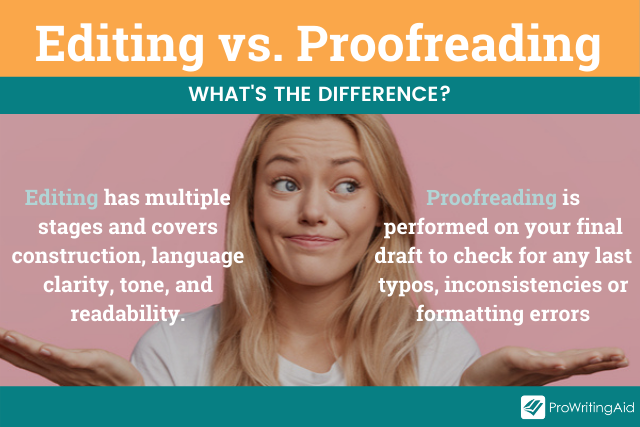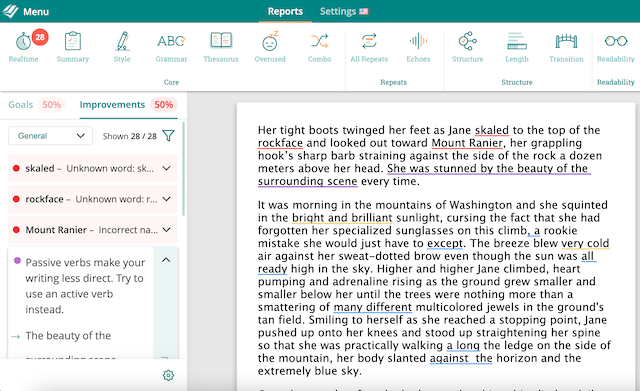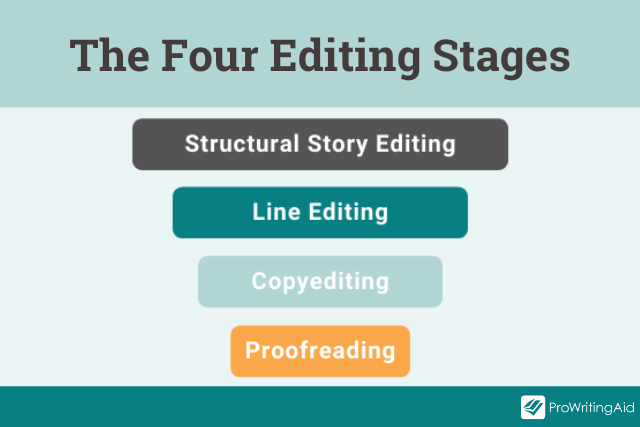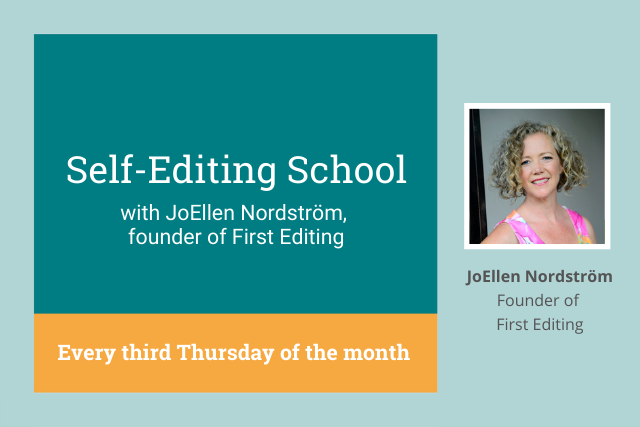Watch JoEllen's live training on Editing vs. Proofreading, then keep reading for more tips:
Writers often use the words “editing” and “proofreading” interchangeably. In fact, they are completely unique and separate services provided by professionals to improve your writing.
Each is essential. However, you need to approach editing separately from proofreading.
Today, we will compare these writing aids and determine the difference. You can then seek the correct help for your writing.
What Is Proofreading?
Proofreading is the final check of your manuscript for grammar, spelling, punctuation, consistency, formatting errors, etc.
A proofread is performed on your final draft. Your proofreader does not reduce your overall word count.
The goal with proofreading is an error-free manuscript. Proofreading requires no collaboration with the author. Your proofreader is dealing with your finished work and simply polishing the words. The writing is submitted as-is and the proofreader begins immediately. The turnaround is quite quick.

What Is Editing?
Editing covers construction, language clarity, tone, and readability. Your professional editor helps you create smooth narration. Editing happens multiple times with various revisions during various stages. Your editor may reduce the word count, if necessary.
When deciding what level of editing you need, it’s important to know where you are in your writing process. If you are still undecided on your story arc and structure, a copyedit won’t be very helpful to you. You may even waste time and money editing a section of your manuscript that won't end up in the final book.
The goal of editing is to improve your overall quality of writing. What this means depends on which level of editing you need and want.
Substantive editing looks at your story arc, pacing, the structure of your scenes and chapters, and your character development throughout your novel.
Copyediting (which comes after) involves looking at your word choices, sentence structure, dialogue, and tone. All types of editing require cooperation and communication from the author.
Want to learn more about editing? Download and keep our complete guide to the process, with 20 tips from professional writers.
Why Should You Self-Edit?
Before you send your work to a professional editor, it’s important to self-edit. This is where you assess your manuscript carefully yourself for the elements described above.
This can be tricky—you’ve been staring at your words for so long in the writing process that it’s easy to miss errors. But if you send your work to an editor without self-editing, you risk wasting their time (and your money) on surface-level errors like typos, repeated words, and hidden verbs that you could have fixed yourself.
So how do you catch them? Editing software like ProWritingAid is built to help you get an overview of your manuscript’s strengths and weaknesses so you can find and fix errors more quickly. With over 25 editing reports, ProWritingAid is the most comprehensive software out there, and one that I recommend to all the editors I work with.
Instead of trawling through your manuscript yourself, let ProWritingAid highlight the areas you need to work on for you:

Try ProWritingAid for free now.
When to Engage a Professional Editor
Once you have self-edited for all these elements, you might decide to pass your work to a professional editor.
It’s important that your editor understands your genre so that they can make the best changes to your manuscript for your purpose—and for your intended readers.
If you are unsure which editing level you need, I recommend you ask for a free editing sample and recommendation. Professional editors can quickly assess what you need and evaluate what level you want from the instructions you provide.
When Do You Need Proofreading?
You’ll know you’re ready to move on to proofreading if:
You are confident with your manuscript and only require a basic proof. Your final check requires just the correction of misspellings, punctuation errors, and typos.
You have already completed the editing process.
You have no more revisions or changes. You feel satisfied with your writing and wish to submit your manuscript in its current state.
When Do You Need Editing?
You may not be ready for proofreading if:
You need assistance with readability, clarity, flow, tone, and coherency. You are not confident in your basic grammar, spelling, and punctuation. You struggle with syntax.
You want assurance that your writing is good and professional. You may feel bored or frustrated with self-editing so you would like to engage neutral help to assess the presentation of your manuscript.
You are in one of the three stages of editing that come before the final proofreading stage:
Substantive content editing includes developmental and structural corrections of your initial draft
Line editing is a page-by-page review of your writing for consistency, clarity, and tone so your writing flows engagingly for your audience from line-to-line
Copyediting provides the final review of grammar, spelling, punctuation, and style on a more mechanical level before formatting

When should you choose a professional editing service?
Get professional editorial help whenever you want or need additional insight. As an author, you are so familiar with your writing that you need a neutral set of eyes to review your presentation and style during the writing and creative phase.
There is no specific time that you must hire an editor. However, I highly recommend that you never skip this phase.
Editing is the best investment you can make in your writing. Your time, energy, and reputation sit within your words. Make sure you use the best presentation for the strongest first impression. Ensure your ideas are conveyed clearly and engagingly to your desired audience.
When you are done self-editing, find the professional editor who is right for you.
Hire a professional editor to eliminate all errors, inconsistencies, and confusion while safeguarding your presentation. Garner attention for your unique voice without ridicule or doubt due to syntax errors.


